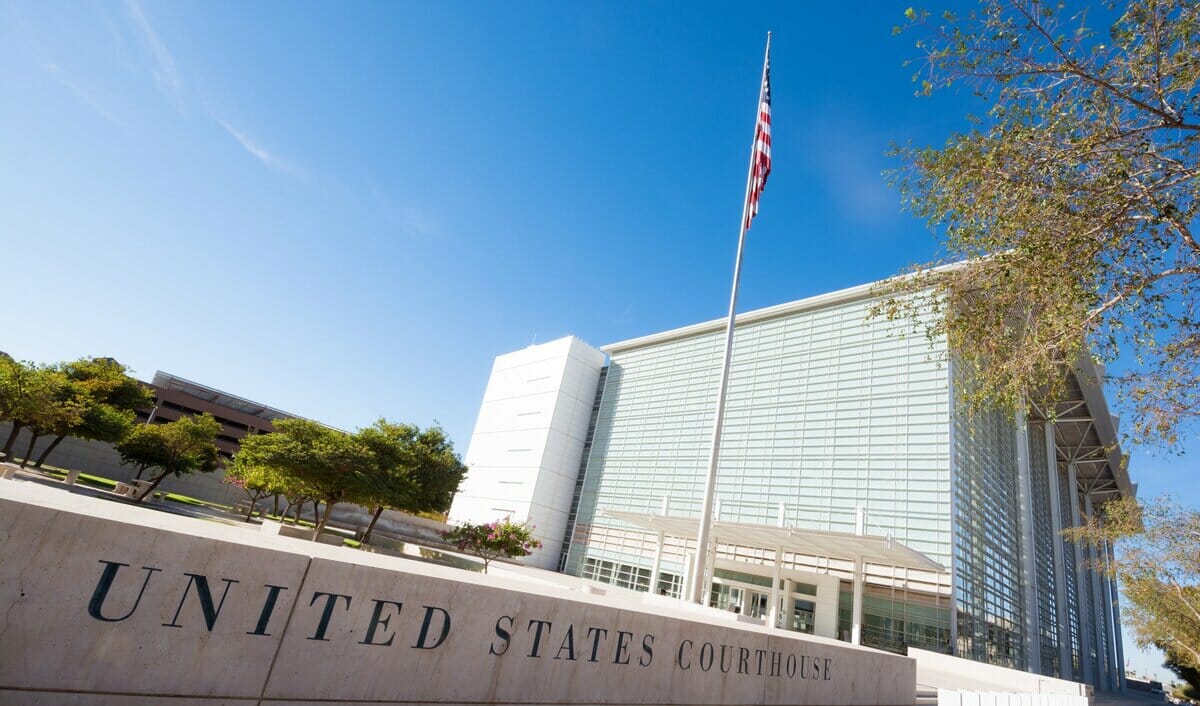New Law Allows for Expungement of Marijuana Crimes in Arizona
Written by Chris Weatherall on Jul 1, 2021
Marijuana use for medicinal and recreational purposes is becoming more and more common across the United States. Though cannabis use was once illegal and punishable by law, many states are now decriminalizing or even legalizing marijuana and its cannabinoids, including CBD and THC. During the 2020 elections, Arizona passed Prop 207, joining the group of states that allows recreational marijuana for individuals 21 and over.
Though this new law does have its caveats, the passing of Prop 207 is excellent news for the state. Residents can now easily access the cannabis plant as part of a natural, more holistic health and pain management regimen. In addition, the state has the opportunity to alleviate prison crowding by eliminating many marijuana-related crimes.
Will Arizona Expunge Marijuana Convictions?

The good news doesn’t end with the elimination of many prison sentences. Because of Prop 207, residents can pursue getting marijuana cases expunged in AZ as of July 12, 2021. This means that those who were previously convicted of a marijuana-related offense that is now legal via prop 207 can petition to have their record expunged.
It is essential to understand that expungement is not automatic, nor will it apply to all marijuana-related arrests and crimes. Because there are still restrictions on cannabis, there will remain certain situations in which a cannabis offense is illegal after Prop 207. As a result, acts that are still illegal after July 12, 2021 cannot be expunged. Additionally, in order to have an offense expunged, the individual must petition the courts. Then, the Arizona state court will review the case and expunge the offense if it fits strict criteria.
Criteria For Expungement
The new Arizona law allows for expungement of some marijuana offenses. As mentioned, in order for the court to consider expungement, the marijuana offense must have been previously illegal, but is now permitted under Arizona’s Prop 207.
These offenses include:
- Possessing paraphernalia related to the use, cultivation, or transportation of cannabis while no actual cannabis was in your possession.
- Using possessing, or transporting an amount of marijuana less than or equal to 2.5 ounces or 12.5 grams.
- Possessing, growing, or transporting up to 6 marijuana plants with the intent to keep them only for personal use.
In general, Arizona residents over the age of 21 are now permitted to have up to 2.5 ounces of marijuana on their person and may grow up to 6 cannabis plants (or 12 for a household of two or more such adults). Because these practices are now legal, the state will expunge such offenses that took place before the law went into effect.
How To Expunge a Marijuana Offense
If you have a marijuana-related offense on your record that fits the above criteria, you may begin the expungement process after July 12, 2021. Unfortunately, despite the fact that hundreds of Arizona residents will become eligible to pursue expungement, few know how the process works.
In order to petition the court to expunge your case, you will first need to fill out the appropriate expungement form containing basic information about yourself and your case. Without the necessary case information, the courts will not be able to begin the process of expunging your case from law enforcement records. In general, you will need to supply information regarding the agency who arrested you, the date of your arrest, and your case number. If you don’t have this information, you should be able to find it online via the Arizona Supreme Court website.
Preparing to Expunge Your Record

Because the Arizona expungement law is new and the incentive to apply for expungement is significant, the courts anticipate a large influx of cases vying for court attention after the July 12th start date. Because the courts will become busy very quickly, it is important to be prepared to ensure your case proceeds smoothly. As a result, you may consider hiring an attorney to help you ensure that you have the necessary information and won’t experience a roadblock due to a pre-existing case.
Whether you intend to hire an attorney or not, here are a few simple things you can do on your own to prepare for expungement:
- Pay all outstanding fines for other convictions, if you have them. Any outstanding balance for your marijuana offense will be waived during your expungement, but payment plans for other offenses can complicate the expungement process.
- Be sure to file with the right court. Not all marijuana arrests result in criminal charges. If your case was not criminal court compliant, be sure to file in the county in which you were arrested. The superior court of that county will handle your expungement.
- If you are in the midst of paying fines or performing community service actions as the result of your expungable marijuana charge, you can request to have these punishments, “stayed.” This means that there will be a pause on both your payments and your community service while your expungement is being processed. If the expungement is accepted, you likely will be released from these obligations altogether.
Though these actions will not guarantee that your expungement will be accepted, preparation can help ensure that your case proceeds smoothly.
Does Expungement Affect People in Jail or Prison?
Those who have been sentenced to jail or prison for a marijuana-related crime are likely curious if this new law could mean an end to their sentence. The short answer is maybe—expungement may allow you to be released early so long as your original offense qualifies for expungement. However, it is important to remember that not all marijuana crimes are eligible for expungement under Prop 207. If your offense qualifies, you must still pursue filing expungement paperwork yourself, as the process is not automatically triggered.
Do I Need An Attorney To Get My Marijuana Charge Expunged?
As mentioned, if your original offense was a particularly complicated case, you may want to consider hiring an attorney. Similarly, an attorney can help you ensure you complete all the necessary paperwork in a timely manner. However, your case cannot be denied solely because you chose not to hire an attorney.
If you have a case that is not urgent—i.e., you are not imprisoned, on probation, or paying restitution, it is likely fine to begin the expungement process without an attorney. The expungement system was designed to be as straightforward as possible, and the information you will need to provide is fairly standard. Most individuals should not anticipate a lengthy court procedure.
When You Should Not File for Expungement
If you do not fit the above criteria for expungement, you should not file a petition. By filing an unnecessary petition, you risk further clogging the already-busy Arizona court system.
Whatever you do, do not lie on the expungement application. These documents must be completed truthfully and signed under penalty of perjury. Providing false information can trigger more charges and legal consequences. If you are unsure whether you qualify for expungement or believe that your case’s unique attributes may warrant an exception, you should talk to an attorney before filing.
Benefits Of Expungement

While the expungement process is straightforward, it can still seem intimidating to some people. Filling out paperwork, filing your case, and appearing in court can create a hurdle that may appear not worth attempting. Though these are valid concerns, there are many significant benefits to removing a marijuana charge from your record.
These benefits include:
- The privilege to serve on a jury
- The ability to buy and own a firearm
- The right to vote in local, state, and national elections
- The ability to live in government housing if needed
- The ability to run for public office and hold a title if elected
- The ability to hold certain professional licenses
Currently, it is illegal or impossible for you to participate in any of the above with criminal charges on your record.
Though not illegal or impossible if you do not have charges on your record, it will likely also be easier to:
- Find housing of any kind
- Get a loan
- Apply for higher education
- Secure a good-paying job in a desired field
As you can see, the benefits of expungement far outweigh any challenges during the process. Depending on your record, expungement of a marijuana charge can drastically change your life and open up many new opportunities.
Medical Marijuana in Arizona
Though laws allowing legal recreational marijuana have made expungement possible, it will be some time before the recreational marijuana dispensary system is as robust as the medicinal network. Fortunately, the same, high-quality, medicinal marijuana will remain available to Arizona card holders. Please note that medical marijuana can still only be dispensed to people who hold a medical marijuana card from a healthcare professional. If you do not hold one of these you are ineligible, but can still purchase recreational cannabis from a certified dispensary.
Medical marijuana can be used as part of a care regimen for many ailments under Arizona law, such as:
- Cancer
- HIV
- Glaucoma
- Crohn’s disease
- Chronic pain
- Nausea
- Hepatitis C
These are just a few examples, as medical marijuana is currently used to treat a host of ailments—new uses are discovered every day. Though medical-grade cannabis is not a standalone solution, it can be part of a holistic treatment plan to support you during recovery.

Kind Meds Advocates for Quality Cannabis in Arizona
At Kind Meds, we believe in using high-quality cannabis as part of a holistic health plan. As recreational marijuana becomes more widespread, we feel confident that Arizona’s new expungement laws will help to mitigate misinformation about this plant and its benefits. Expungement under Prop 207 is the first step toward justice for those prosecuted for now-legal acts.







